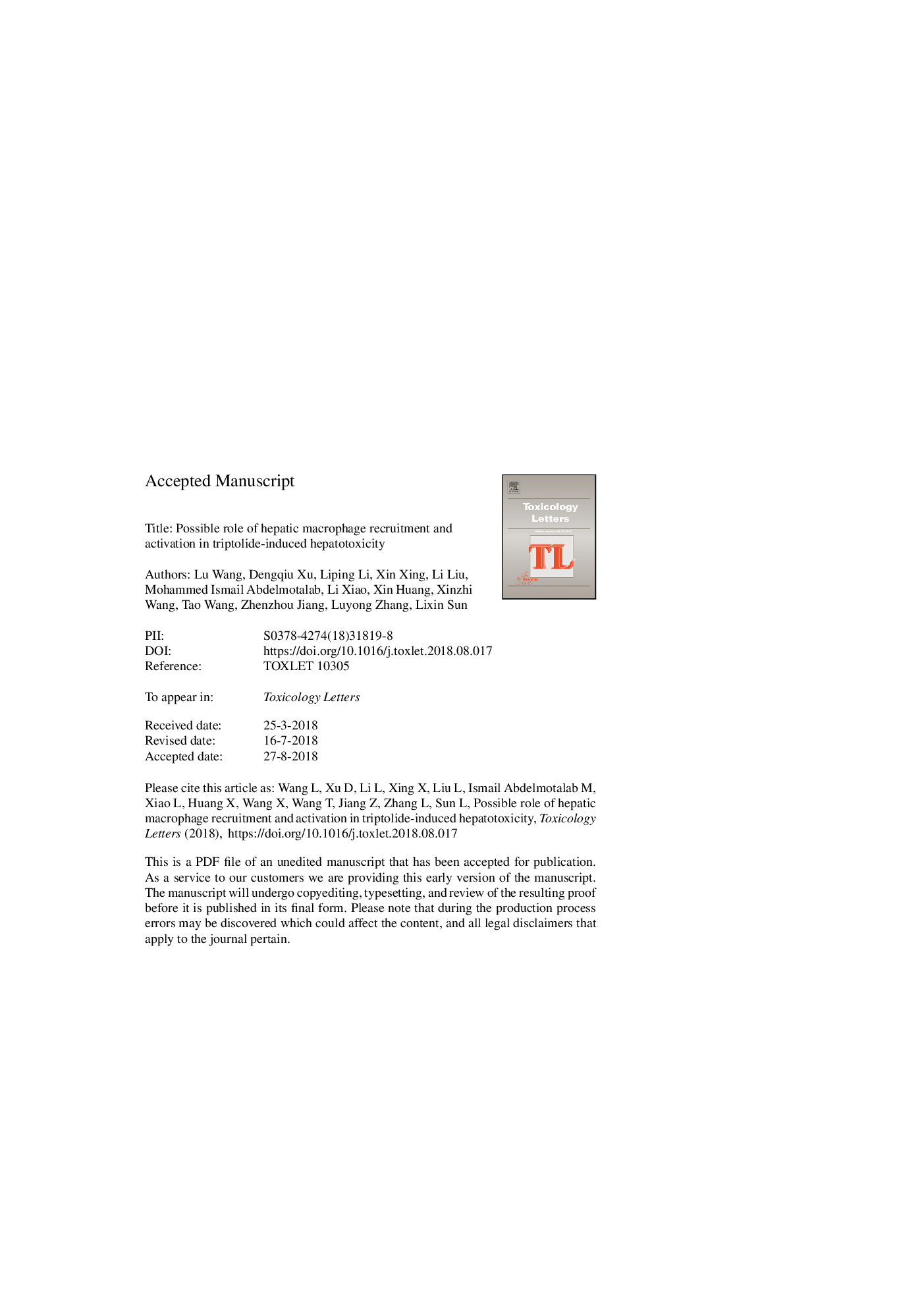| Article ID | Journal | Published Year | Pages | File Type |
|---|---|---|---|---|
| 10158620 | Toxicology Letters | 2018 | 26 Pages |
Abstract
Hepatic macrophages are central players in the pathogenesis of some liver diseases, but few studies have examined the effect of triptolide (TP) on these cells. In this study, we investigated the possible role of hepatic macrophage recruitment and activation in triptolide-induced hepatotoxicity based on a non-hepatotoxic dose of lipopolysaccharides (LPS). The results showed that continuous administration of TP for two weeks and a single challenge of low-dose lipopolysaccharides increased the number of hepatic macrophages but inhibited their phagocytic function. TP induced the liver to recruit monocyte-derived macrophages (MoMFs) in response to a single challenge of low-dose LPS, resulting in acute inflammation and increased sensitivity to the endotoxin. Concurrent administration of TP with LPS resulted in obvious hepatotoxicity, but a single dose of LPS did not induce hepatotoxicity. These results indicate that TP could change the number and function of hepatic macrophages to reduce the ability of the liver to clear mild endotoxins, thus increasing blood endotoxin levels and increasing the sensitivity of the liver to low-dose LPS. By investigating the critical function of hepatic macrophages in TP-induced hepatotoxicity, this study elucidated the mechanism underlying TP-induced hepatotoxicity.
Keywords
Related Topics
Life Sciences
Environmental Science
Health, Toxicology and Mutagenesis
Authors
Lu Wang, Dengqiu Xu, Liping Li, Xin Xing, Li Liu, Mohammed Ismail Abdelmotalab, Li Xiao, Tao Pang, Xin Huang, Xinzhi Wang, Tao Wang, Zhenzhou Jiang, Luyong Zhang, Lixin Sun,
